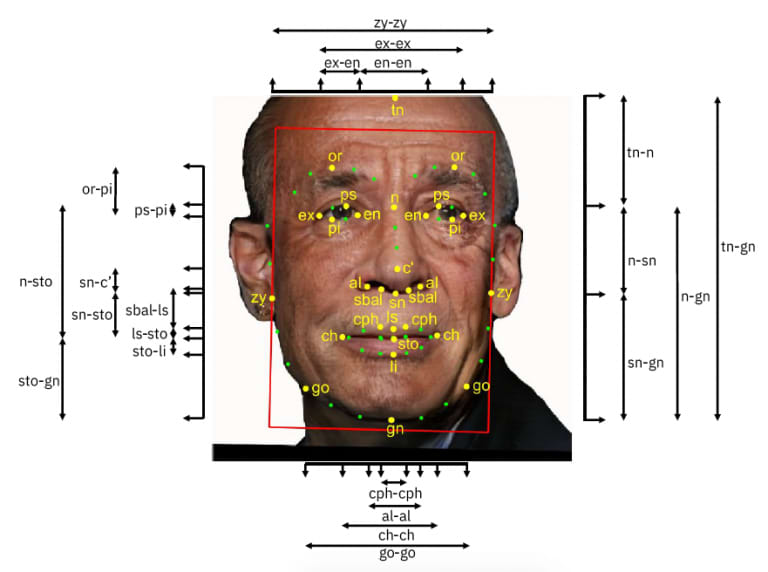
An annotated image of IBM’s Diversity in Faces facial recognition systems dataset.
IBM
LONDON – The use of artificial intelligence software for mass surveillance and social behavior ranking could soon be banned in Europe, according to draft legislation shared online.
The 81-page document, first reported by Politico, says “arbitrary surveillance of individuals should be prohibited when applied in a general way to all individuals without discrimination.”
It adds that the surveillance methods can include monitoring and tracking people in digital and physical environments.
Regarding social credit score, already in use in China, the draft law says, “AI systems used for overall social scores” should be banned.
Certain applications of “risky” AI could be banned altogether, according to the document, while others may not be able to enter the block if they don’t meet certain standards.
A European Commission spokesperson told CNBC, “The Commission will adopt the regulatory framework for AI next Wednesday, April 21, 2021. Any text you see earlier is therefore by definition not ‘legitimate’ – we will not comment on leaks.”
Balancing act
AI systems that are considered risky should be inspected when deployed and the creators of the system may need to demonstrate that it has been trained in a traceable manner and with human oversight on unbiased datasets.
Companies developing AI inside and outside the EU could reportedly be fined 20 million euros ($ 24 million) or 4% of global revenues if they break laws that have yet to be enacted.
The proposals will be formally announced next week by the European Commission, the EU’s executive arm, and are subject to change until then. They must be voted on before they are introduced.
The European Commission is trying to strike the right balance between supporting innovation and ensuring that AI benefits its more than 500 million residents. If the proposals are passed, Europe will be able to differentiate itself from the US and China, which are not yet required to introduce serious AI regulations.
Omer Tene, vice president of the international association of non-profit privacy professionals, said via Twitter that the legislation “represents the typical Brussels approach to new technology and innovation. Rule when in doubt”.
Samim Winiger, an AI researcher in Berlin, Germany, told CNBC that the EU is “far behind” China and the US in the AI race.
“I find it rather difficult to understand how the introduction of highly complex, advanced AI regulations into a niche market will have a real impact on the development of ‘AI’ worldwide,” he said.